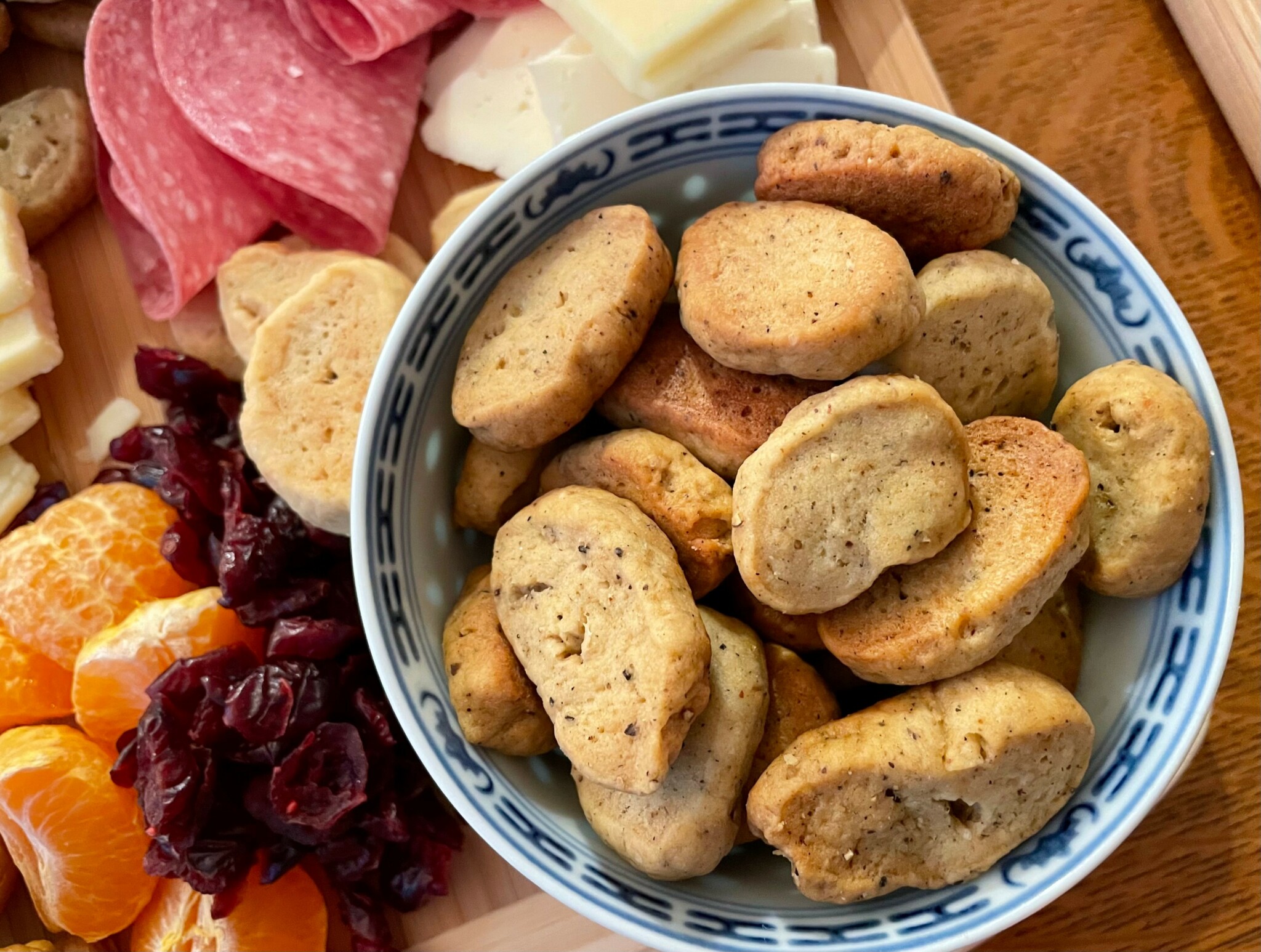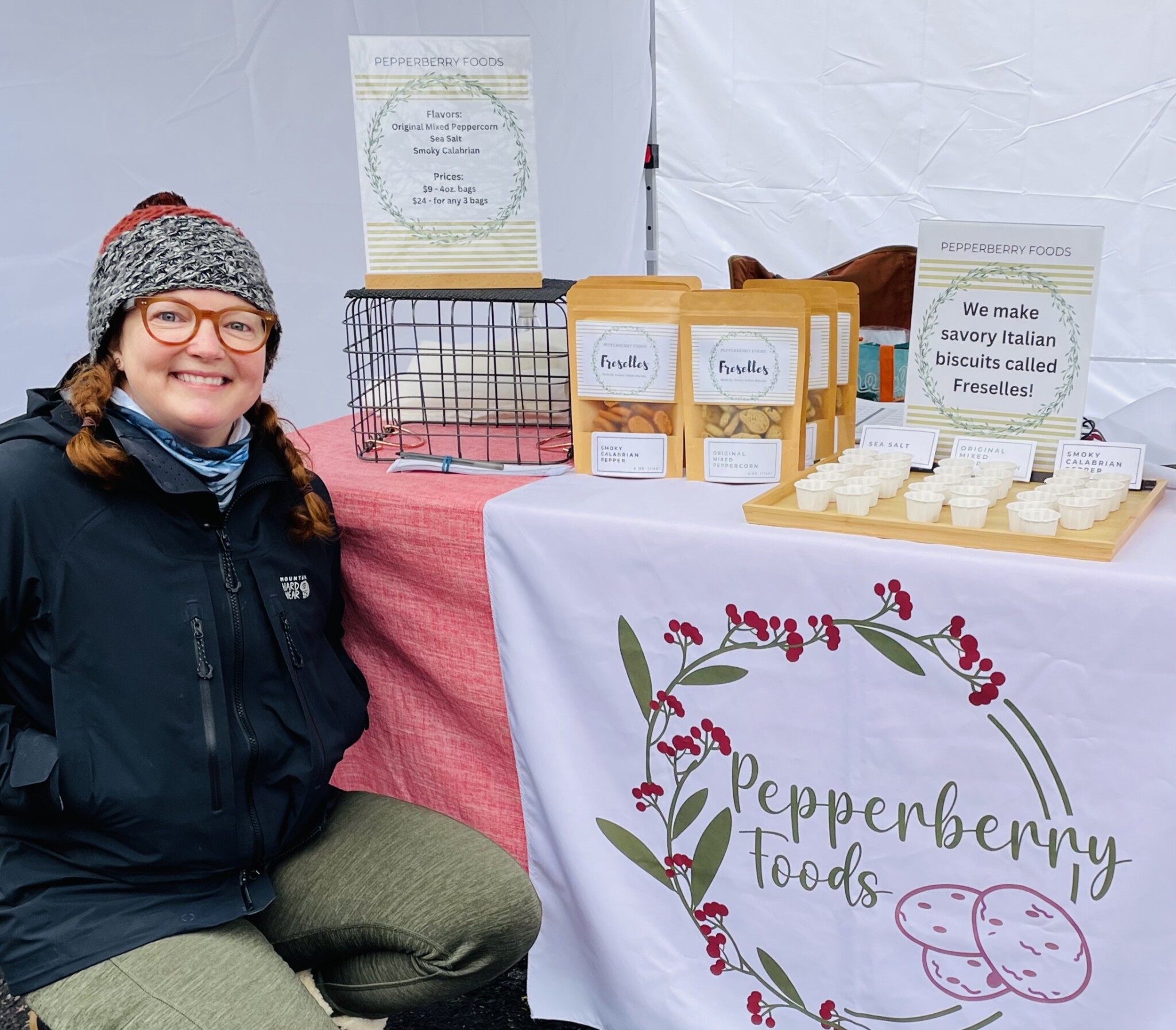Alright – so today we’ve got the honor of introducing you to Madeline Barbera. We think you’ll enjoy our conversation, we’ve shared it below.
Hi Madeline, thanks for joining us today. We’d love to hear your thoughts about family businesses.
When I began my professional career, owning a business wasn’t on my radar at all. Growing up, my father ran a dental practice in a small town in Massachusetts. Nearly every day, he made his short commute to the office, cared for patients, inevitably ran late, and returned home to our family each night. Watching him work, it was clear that he took his time with every appointment—not just to provide care, but to truly listen. He asked patients about their lives, their families, and their work, making each visit feel personal. His practice wasn’t just about dentistry; it was about building relationships, meeting people where they were, and creating a welcoming space. I saw firsthand how deeply connected he was to his patients and how much he loved his work.
But anyone who has owned—or been close to—a small business knows that it comes with volatility. Balancing financial uncertainty, customer needs, and family life can feel like a rollercoaster. The unpredictability can put a real strain on those closest to you, making it difficult to plan long-term or find consistency in daily life.
It wasn’t until much later in my career that I began to see the appeal of building something of my own—something creative, meaningful, and challenging. Like my father, I had an independent spark and a drive to forge my own path. It took time to find the right industry and a product I was passionate about, but once I did, everything clicked. What once seemed unlikely became undeniable, and I moved forward with unwavering enthusiasm.
Now, with my own family business, Pepperberry Foods, I have a newfound appreciation for the volatility I witnessed as a child. I recognize the same highs and lows—balancing baking my Italian biscuits, fostering relationships at farmers’ markets, and preserving quality time with my husband, family, and friends. Yet, despite the challenges, I love the meaningful work, the connection to Portland’s small business community, and the creative energy it brings.
The reality of running a business is far grittier than the romanticized vision many start with. I’m grateful to have had an early window into the realities of small business ownership, but it’s a constant lesson in learning, adapting, and taking action.

Madeline, love having you share your insights with us. Before we ask you more questions, maybe you can take a moment to introduce yourself to our readers who might have missed our earlier conversations?
For those I haven’t met yet, I’m Madeline, owner and founder of Pepperberry Foods! We specialize in freselles (“fra-zelles”)—savory Italian biscuits known for their hearty crunch, rich depth of flavor, and versatility. You’ll often hear me say, “We are built for snacking!” Traditionally, freselles are found on charcuterie boards, floating in soups, or enjoyed on their own with a glass of wine during aperitivo. We honor authentic Italian traditions while introducing fresh, modern takes on classic recipes, making them perfect for anyone who loves discovering unique, locally made snacks that pack bold flavors into every bite.
It’s no secret that this business was inspired by my mother-in-law, Mary (I know—not the typical mother-in-law and daughter-in-law story!). Early in my relationship with my now-husband, Jack, I was nervous about meeting her, knowing how close they had always been. To make things a little easier, I suggested cooking together as a way to chat and get to know each other. One of the first recipes she taught me was for freselles—savory, black pepper-infused Italian biscuits. Her mother, Mary Catherine, or “Gram,” had created the recipe, drawing from her Sicilian heritage. It was a staple in their home, always made when family and friends visited. Gram even sent freselles in care packages to her brothers serving in the Army as a comforting taste of home during uncertain times.
Mary and I bonded quickly, in large part because her family reminded me so much of my own. We both grew up in homes where making people feel welcome, comfortable, and cared for was at the heart of everything. Now, as I carry that tradition forward through my company, I constantly think about how to honor that same sense of warmth, hospitality, and connection.
Freselles (or friselli in Italian) have deep roots in southern Italy, particularly in Puglia, Calabria, and Sicily, and they remain a staple in Italian-American households across New York and New England. Traditionally, they’re paired with antipasto platters, soaked in sauces, dunked in soups, or even enjoyed with coffee in the morning. As we grow, we remain true to these roots while introducing new flavors—rich olive oil, bright pepper blends, crisp sea salt, and bold smoky essence. We’re also exploring herbal, spicy, and gluten-free options. And yes, all our freselles are vegan too!
Many brands focus on how their products elevate an occasion. While our freselles certainly do that, I believe they also ground you in something familiar—traditional flavors that evoke warmth, belonging, and connection. When I meet customers at the market, I’m proud to share that our freselles are an authentic representation of my family’s recipes and the values passed down through generations. From my father’s quiet, welcoming way of caring for his patients in his small-town dental practice to the way my mother-in-law, Mary, shared her traditions with me early in our relationship, Pepperberry Foods is built on that same foundation of warmth and hospitality.
If you ask other business owners, they’ll tell you it’s always about more than just the product—it’s the deeper “why” that keeps us going. For me, that “why” is bringing to life our Sicilian-inspired family freselle recipe, one that, at its core, says: Welcome to our table. We’re so glad you’re here.
Okay – so how did you figure out the manufacturing part? Did you have prior experience?
Yes, I make all of our freselles by hand, but food manufacturing was an entirely new world for me! My background is in healthcare and management consulting, where I spent years immersed in project management. That experience helped me navigate the intricate details of food safety, packaging, and FDA compliance—areas that required extensive research and plenty of patience.
Before settling on sharing our family’s freselles, I had brainstormed many product ideas, considering how they might grow or serve customers. One resource I love and often recommend is the Business Model Canvas—it’s a simple, streamlined way to outline key areas of a business.
To scale Gram’s original freselle recipe, I worked with a food scientist at the OSU Food Innovation Center. We tested moisture content, adjusted baking temperatures, and refined the formula. This also meant burning a lot of freselles—turns out commercial ovens perform very differently from my tiny home stove! Learning to manufacture a product involved diving into free resources from the Oregon Secretary of State website and the FDA, as well as working with Bohemian Kitchen, a shared commercial kitchen. Their team, along with the small business community there, provided invaluable guidance, allowing me to scale up production gradually instead of committing to a long-term lease.
One thing that’s rarely talked about is how much research goes into studying other brands as a newcomer. Observing packaging design, brand colors, product descriptions, and how owners interact with customers and each other—there’s so much to learn from those already doing great work. Portland’s food scene can be a little intimidating, but more often than not, it’s incredibly collaborative and supportive.
Operationally, mastering commercial kitchen equipment and refining processes for baking and packaging takes trial and error—a lot of awkward baking sessions and, once again, burning a lot of freselles! (In case it’s not widely known, bakers burn a ton of stuff before getting it just right.) But beyond baking (and burning), I’ve learned that entrepreneurship is ultimately about resilience. You have to be willing to taste your product, admit when it needs work, and then figure out how to make it better—over and over again. The key is not to take those mistakes too personally and just keep the momentum going.
What else should we know about how you took your side hustle and scaled it up into what it is today?
I finally took the leap to start my side hustle when the challenges of the pandemic collided with a difficult phase in my management consulting career. I was working with a demanding client in a high-stress, volatile environment, and the pandemic only amplified the sense of restriction and dissatisfaction. It became clear that this work life wasn’t sustainable—I had little control over my assignments, workload, or the toxic client culture around me. I realized that if I wanted a different future, I had to start building it, even if the timing felt far from ideal. I know I’m not alone in feeling that push for change, sparked by the pandemic’s impact on our lives and communities.
For two years, I balanced full-time consulting while slowly growing Pepperberry Foods. After two strong market seasons, a savings cushion, and the upcoming holiday market season, I decided it was time to go all in. Now, with growing traction in grocery, wholesale, and specialty stores, I feel confident that customers are enjoying our freselles—and that what started as a side hustle is evolving into something much bigger.
Contact Info:
- Website: https://www.pepperberryfoods.com
- Instagram: @pepperberryfoods_pnw
- Facebook: https://Facebook.com/PepperberryFoods


